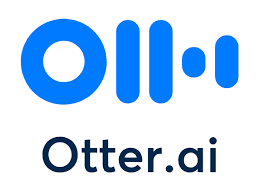How can ai benefit me?
How can ai benefit me?
How can ai benefit me?
AI and AI Copilots Can Transform Your Business
The world of artificial intelligence (AI) is as mystifying as it is rapidly evolving, offering businesses a new frontier of opportunities. For small business owners, entrepreneurs, startups, and business innovators alike, mastering AI and its applications is becoming less of an option and more of a necessity. This article aims to demystify AI, particularly AI copilots, and explore their benefits—a guide for the tech enthusiast and the professional consultant set on steering their business into the future.
Understanding Artificial Intelligence
At its core, Artificial Intelligence (AI) is a branch of computer science that focuses on creating systems capable of performing tasks that typically require human intelligence. These tasks can include learning, problem-solving, decision-making, and speech recognition. AI operates on a set of algorithms and can handle complex data, yielding insights and automated actions that are beyond human capacity or speed. The goal of AI is to create intelligent machines that can think, learn, and act like humans to streamline processes and improve efficiency.
Types of AI
There are three main types of AI: Artificial Narrow Intelligence (ANI), Artificial General Intelligence (AGI), and Artificial Superintelligence (ASI). ANI refers to the type of AI that is confined to a specific task or problem. AGI aims to develop intelligent machines that can perform multiple tasks, similar to human intelligence. ASI, on the other hand, refers to a theoretical level of AI capable of surpassing human intelligence and solving complex problems beyond our understanding. As of now, ANI is the most commonly used type of AI and is what we interact with in our daily lives, such as virtual assistants like Siri or Alexa. However, advancements in AGI and ASI are constantly being researched and developed.
Machine Learning vs. AI
Machine Learning (ML) is often mentioned in tandem with AI, but what's the difference? ML is a subset of AI, where machines learn from data and improve their functions over time, without being explicitly programmed for specific tasks. AI is the broader concept that includes ML, entailing all machines that mimic cognitive functions to perform tasks.
What is Large Language Model (LLM)?
A Large Language Model (LLM) like GPT (Generative Pretrained Transformer) harnesses the power of machine learning to understand and generate human-like text. It uses vast amounts of data to understand language patterns and context, allowing it to produce responses that can seem strikingly thoughtful and relevant.
The rise of the AI Copilot
AI copilots are advanced AI applications designed to assist users in various tasks, such as coding, content creation, data analysis, and decision-making. They complement human efforts, optimize processes, and increase efficiency—often in real-time. These copilots use machine learning algorithms to analyze data, identify patterns, and make predictions or recommendations based on the data. They can assist with tasks such as project management, customer service, marketing strategies, and even financial analysis. The concept of AI copilots is gaining popularity as businesses seek ways to stay competitive and streamline operations.
Benefits of AI Copilots for Businesses
Increased Efficiency: With the help of AI copilots, businesses can automate repetitive tasks and free up valuable time for employees to focus on more critical tasks that require human input.
Data Analysis and Insights: AI copilots can analyze vast amounts of data quickly and accurately, providing valuable insights and predictions for businesses to make informed decisions.
Improved Customer Experience: By utilizing AI copilots, businesses can improve their customer service by providing personalized and efficient support.
Cost-Effective Solutions: Implementing AI copilots can save businesses money by reducing the need for human labor and increasing efficiency in operations.
Adapting to Changing Markets: With the ability to analyze data and make predictions, AI copilots can help businesses stay ahead of market trends and adapt quickly to changing environments.
The Rise of AI Copilots
AI copilots are a subset of ANI that focuses on assisting humans in completing tasks rather than replacing them entirely. They work alongside humans, providing support and suggestions to improve performance. While AI copilots have been around for some time, advancements in technology have made them more accessible and practical for businesses of all sizes. They are becoming increasingly prevalent in industries such as finance, healthcare, marketing, and customer service.
Utilizing AI Copilots
Here are some ways AI copilots can be employed:
Content Generation: From writing articles to crafting social media posts, AI can help you churn out written content efficiently.
Customer Service: AI-powered chatbots can manage customer queries, providing quick resolutions and 24/7 service.
Market Research: AI tools can analyze market data, gaining insights that can inform business strategy.
Sales Optimization: AI can refine lead qualification, predict sales trends, and personalize the customer experience.
Envisioning the Future with AI Copilots
The future with AI copilots looks promising and versatile. They're expected to become more intuitive, capable of managing more complex tasks, and seamlessly integrated into businesses of all kinds. With advancements in AI ethics and governance, there's potential for streamlined collaboration between humans and machines, transforming how we work and what we can achieve.
Getting Started with AI Copilots
Considering adopting an AI copilot? Kickstart the process by:
Identifying Needs: Determine which processes or tasks in your business could benefit most from automation or AI.
Research: Look into available AI solutions tailored to your industry and needs.
Implementation Plan: Draft a plan on integrating and scaling AI tools within your business.
Training: Ensure your team is well-equipped to partner with AI by providing the necessary training and resources.
By welcoming AI and AI copilots into your business, you're not just adopting cutting-edge technology—you're claiming a stake in the future of enterprise, one where innovation, efficiency, and insight are more than buzzwords; they're indispensable business assets. Start exploring the possibilities of AI today!
AI has come a long way, and its potential for growth and advancement is limitless. From ANI to AGI to ASI, the different types of AI continue to shape and revolutionize various industries. With the rise of AI copilots, we can expect even more efficient, personalized, and intelligent solutions to enhance our daily lives and businesses.
AI and AI Copilots Can Transform Your Business
The world of artificial intelligence (AI) is as mystifying as it is rapidly evolving, offering businesses a new frontier of opportunities. For small business owners, entrepreneurs, startups, and business innovators alike, mastering AI and its applications is becoming less of an option and more of a necessity. This article aims to demystify AI, particularly AI copilots, and explore their benefits—a guide for the tech enthusiast and the professional consultant set on steering their business into the future.
Understanding Artificial Intelligence
At its core, Artificial Intelligence (AI) is a branch of computer science that focuses on creating systems capable of performing tasks that typically require human intelligence. These tasks can include learning, problem-solving, decision-making, and speech recognition. AI operates on a set of algorithms and can handle complex data, yielding insights and automated actions that are beyond human capacity or speed. The goal of AI is to create intelligent machines that can think, learn, and act like humans to streamline processes and improve efficiency.
Types of AI
There are three main types of AI: Artificial Narrow Intelligence (ANI), Artificial General Intelligence (AGI), and Artificial Superintelligence (ASI). ANI refers to the type of AI that is confined to a specific task or problem. AGI aims to develop intelligent machines that can perform multiple tasks, similar to human intelligence. ASI, on the other hand, refers to a theoretical level of AI capable of surpassing human intelligence and solving complex problems beyond our understanding. As of now, ANI is the most commonly used type of AI and is what we interact with in our daily lives, such as virtual assistants like Siri or Alexa. However, advancements in AGI and ASI are constantly being researched and developed.
Machine Learning vs. AI
Machine Learning (ML) is often mentioned in tandem with AI, but what's the difference? ML is a subset of AI, where machines learn from data and improve their functions over time, without being explicitly programmed for specific tasks. AI is the broader concept that includes ML, entailing all machines that mimic cognitive functions to perform tasks.
What is Large Language Model (LLM)?
A Large Language Model (LLM) like GPT (Generative Pretrained Transformer) harnesses the power of machine learning to understand and generate human-like text. It uses vast amounts of data to understand language patterns and context, allowing it to produce responses that can seem strikingly thoughtful and relevant.
The rise of the AI Copilot
AI copilots are advanced AI applications designed to assist users in various tasks, such as coding, content creation, data analysis, and decision-making. They complement human efforts, optimize processes, and increase efficiency—often in real-time. These copilots use machine learning algorithms to analyze data, identify patterns, and make predictions or recommendations based on the data. They can assist with tasks such as project management, customer service, marketing strategies, and even financial analysis. The concept of AI copilots is gaining popularity as businesses seek ways to stay competitive and streamline operations.
Benefits of AI Copilots for Businesses
Increased Efficiency: With the help of AI copilots, businesses can automate repetitive tasks and free up valuable time for employees to focus on more critical tasks that require human input.
Data Analysis and Insights: AI copilots can analyze vast amounts of data quickly and accurately, providing valuable insights and predictions for businesses to make informed decisions.
Improved Customer Experience: By utilizing AI copilots, businesses can improve their customer service by providing personalized and efficient support.
Cost-Effective Solutions: Implementing AI copilots can save businesses money by reducing the need for human labor and increasing efficiency in operations.
Adapting to Changing Markets: With the ability to analyze data and make predictions, AI copilots can help businesses stay ahead of market trends and adapt quickly to changing environments.
The Rise of AI Copilots
AI copilots are a subset of ANI that focuses on assisting humans in completing tasks rather than replacing them entirely. They work alongside humans, providing support and suggestions to improve performance. While AI copilots have been around for some time, advancements in technology have made them more accessible and practical for businesses of all sizes. They are becoming increasingly prevalent in industries such as finance, healthcare, marketing, and customer service.
Utilizing AI Copilots
Here are some ways AI copilots can be employed:
Content Generation: From writing articles to crafting social media posts, AI can help you churn out written content efficiently.
Customer Service: AI-powered chatbots can manage customer queries, providing quick resolutions and 24/7 service.
Market Research: AI tools can analyze market data, gaining insights that can inform business strategy.
Sales Optimization: AI can refine lead qualification, predict sales trends, and personalize the customer experience.
Envisioning the Future with AI Copilots
The future with AI copilots looks promising and versatile. They're expected to become more intuitive, capable of managing more complex tasks, and seamlessly integrated into businesses of all kinds. With advancements in AI ethics and governance, there's potential for streamlined collaboration between humans and machines, transforming how we work and what we can achieve.
Getting Started with AI Copilots
Considering adopting an AI copilot? Kickstart the process by:
Identifying Needs: Determine which processes or tasks in your business could benefit most from automation or AI.
Research: Look into available AI solutions tailored to your industry and needs.
Implementation Plan: Draft a plan on integrating and scaling AI tools within your business.
Training: Ensure your team is well-equipped to partner with AI by providing the necessary training and resources.
By welcoming AI and AI copilots into your business, you're not just adopting cutting-edge technology—you're claiming a stake in the future of enterprise, one where innovation, efficiency, and insight are more than buzzwords; they're indispensable business assets. Start exploring the possibilities of AI today!
AI has come a long way, and its potential for growth and advancement is limitless. From ANI to AGI to ASI, the different types of AI continue to shape and revolutionize various industries. With the rise of AI copilots, we can expect even more efficient, personalized, and intelligent solutions to enhance our daily lives and businesses.
AI and AI Copilots Can Transform Your Business
The world of artificial intelligence (AI) is as mystifying as it is rapidly evolving, offering businesses a new frontier of opportunities. For small business owners, entrepreneurs, startups, and business innovators alike, mastering AI and its applications is becoming less of an option and more of a necessity. This article aims to demystify AI, particularly AI copilots, and explore their benefits—a guide for the tech enthusiast and the professional consultant set on steering their business into the future.
Understanding Artificial Intelligence
At its core, Artificial Intelligence (AI) is a branch of computer science that focuses on creating systems capable of performing tasks that typically require human intelligence. These tasks can include learning, problem-solving, decision-making, and speech recognition. AI operates on a set of algorithms and can handle complex data, yielding insights and automated actions that are beyond human capacity or speed. The goal of AI is to create intelligent machines that can think, learn, and act like humans to streamline processes and improve efficiency.
Types of AI
There are three main types of AI: Artificial Narrow Intelligence (ANI), Artificial General Intelligence (AGI), and Artificial Superintelligence (ASI). ANI refers to the type of AI that is confined to a specific task or problem. AGI aims to develop intelligent machines that can perform multiple tasks, similar to human intelligence. ASI, on the other hand, refers to a theoretical level of AI capable of surpassing human intelligence and solving complex problems beyond our understanding. As of now, ANI is the most commonly used type of AI and is what we interact with in our daily lives, such as virtual assistants like Siri or Alexa. However, advancements in AGI and ASI are constantly being researched and developed.
Machine Learning vs. AI
Machine Learning (ML) is often mentioned in tandem with AI, but what's the difference? ML is a subset of AI, where machines learn from data and improve their functions over time, without being explicitly programmed for specific tasks. AI is the broader concept that includes ML, entailing all machines that mimic cognitive functions to perform tasks.
What is Large Language Model (LLM)?
A Large Language Model (LLM) like GPT (Generative Pretrained Transformer) harnesses the power of machine learning to understand and generate human-like text. It uses vast amounts of data to understand language patterns and context, allowing it to produce responses that can seem strikingly thoughtful and relevant.
The rise of the AI Copilot
AI copilots are advanced AI applications designed to assist users in various tasks, such as coding, content creation, data analysis, and decision-making. They complement human efforts, optimize processes, and increase efficiency—often in real-time. These copilots use machine learning algorithms to analyze data, identify patterns, and make predictions or recommendations based on the data. They can assist with tasks such as project management, customer service, marketing strategies, and even financial analysis. The concept of AI copilots is gaining popularity as businesses seek ways to stay competitive and streamline operations.
Benefits of AI Copilots for Businesses
Increased Efficiency: With the help of AI copilots, businesses can automate repetitive tasks and free up valuable time for employees to focus on more critical tasks that require human input.
Data Analysis and Insights: AI copilots can analyze vast amounts of data quickly and accurately, providing valuable insights and predictions for businesses to make informed decisions.
Improved Customer Experience: By utilizing AI copilots, businesses can improve their customer service by providing personalized and efficient support.
Cost-Effective Solutions: Implementing AI copilots can save businesses money by reducing the need for human labor and increasing efficiency in operations.
Adapting to Changing Markets: With the ability to analyze data and make predictions, AI copilots can help businesses stay ahead of market trends and adapt quickly to changing environments.
The Rise of AI Copilots
AI copilots are a subset of ANI that focuses on assisting humans in completing tasks rather than replacing them entirely. They work alongside humans, providing support and suggestions to improve performance. While AI copilots have been around for some time, advancements in technology have made them more accessible and practical for businesses of all sizes. They are becoming increasingly prevalent in industries such as finance, healthcare, marketing, and customer service.
Utilizing AI Copilots
Here are some ways AI copilots can be employed:
Content Generation: From writing articles to crafting social media posts, AI can help you churn out written content efficiently.
Customer Service: AI-powered chatbots can manage customer queries, providing quick resolutions and 24/7 service.
Market Research: AI tools can analyze market data, gaining insights that can inform business strategy.
Sales Optimization: AI can refine lead qualification, predict sales trends, and personalize the customer experience.
Envisioning the Future with AI Copilots
The future with AI copilots looks promising and versatile. They're expected to become more intuitive, capable of managing more complex tasks, and seamlessly integrated into businesses of all kinds. With advancements in AI ethics and governance, there's potential for streamlined collaboration between humans and machines, transforming how we work and what we can achieve.
Getting Started with AI Copilots
Considering adopting an AI copilot? Kickstart the process by:
Identifying Needs: Determine which processes or tasks in your business could benefit most from automation or AI.
Research: Look into available AI solutions tailored to your industry and needs.
Implementation Plan: Draft a plan on integrating and scaling AI tools within your business.
Training: Ensure your team is well-equipped to partner with AI by providing the necessary training and resources.
By welcoming AI and AI copilots into your business, you're not just adopting cutting-edge technology—you're claiming a stake in the future of enterprise, one where innovation, efficiency, and insight are more than buzzwords; they're indispensable business assets. Start exploring the possibilities of AI today!
AI has come a long way, and its potential for growth and advancement is limitless. From ANI to AGI to ASI, the different types of AI continue to shape and revolutionize various industries. With the rise of AI copilots, we can expect even more efficient, personalized, and intelligent solutions to enhance our daily lives and businesses.

Notion AI (within Notion)
Notion has integrated AI capabilities that can help you organize your work, generate content, summarize meetings, and even draft emails. It's an all-in-one workspace that becomes even more powerful with AI, making it easier to manage projects, tasks, and documents.
Visit Site

Notion AI (within Notion)
Notion has integrated AI capabilities that can help you organize your work, generate content, summarize meetings, and even draft emails. It's an all-in-one workspace that becomes even more powerful with AI, making it easier to manage projects, tasks, and documents.
Visit Site

Notion AI (within Notion)
Notion has integrated AI capabilities that can help you organize your work, generate content, summarize meetings, and even draft emails. It's an all-in-one workspace that becomes even more powerful with AI, making it easier to manage projects, tasks, and documents.
Visit Site

Microsoft Copilot
Integrated into Microsoft 365, Copilot works across applications like Word, Excel, PowerPoint, and Outlook. It can help draft emails, create presentations, analyze data, and even generate reports, streamlining your workflow significantly.
Read More

Otter.ai
This AI tool is excellent for transcription and meeting notes. It can transcribe conversations in real-time, making it invaluable for meetings, interviews, and lectures. Otter.ai also offers features like summarization and keyword searches, making it easy to manage and review your recordings.
Read More

Zapier
While not an AI tool in the traditional sense, Zapier automates workflows between different apps and services. You can use it to connect your favorite productivity tools, automating repetitive tasks without needing to code.
Read More

Grammarly
INK is designed to optimize web content for SEO. It not only helps in writing content but also provides SEO recommendations to improve the visibility of your content in search engines. This is particularly useful if you're focused on driving organic traffic to your website.
Read More

Replika
If you're looking for an AI companion to talk through ideas or just to have someone to chat with, Replika can be a unique tool. It's designed to respond in a conversational manner, offering emotional support and a space to brainstorm or reflect on your thoughts.
Read More

Asana’s AI Work Graph
This feature within Asana uses AI to help teams manage their projects and workflows more efficiently. It provides insights and recommendations to optimize your project planning and execution.
Read More

Trello with Butler
Trello's built-in automation tool, Butler, uses rule-based triggers to automate tasks and workflows within your Trello boards. It can manage due dates, assign tasks, and much more, helping you to stay organized with minimal effort.
Read More
Each of these tools offers unique features to enhance productivity, whether you're working individually or as part of a team. The key is to choose the ones that best fit your workflow and the specific challenges you're looking to address.
